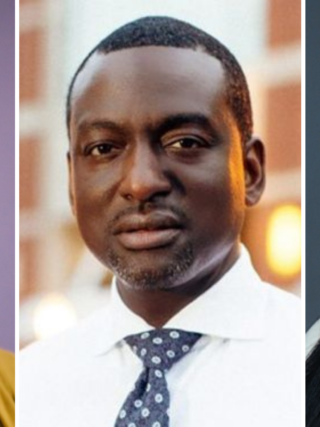I once had an older man tell me to my face that he “didn’t read books written by women.” I was a teenager at the time and had no idea how to respond to such an obviously closeminded comment by someone who was older and supposedly wiser than me. This statement came right after I’d expressed how I’d love to be an author someday.
That single encounter could’ve been enough to derail my career and make me rethink my choices. Would any men read what I wrote? Was I wrong to want to become an author?
When I was growing up, most of the big, thick fantasy books I picked up in bookstores had men’s names on them, and it left me with the impression that fantasy and science fiction were for men. From J.R.R. Tolkien to Robert Jordan to Terry Prachett to Terry Brooks. Everywhere I looked were the names of men. And it’s not that they didn’t write amazing stories. They did. I just wasn’t sure my name would ever join what seemed like such an exclusive club that required a Y chromosome to join.
But I wanted to try.
We Love Our 88 Cups of Tea Patreon Family!
If you’ve ever wondered how to best support the content you love to consume, signing up to join our Patreon Family is the most helpful way! Get access to join our live virtual write-ins, listen to extended interviews, receive handwritten postcards and welcome packages from the host, and more!
Over the years, we’ve earned the reputation of adding more positivity and hope into people’s lives, boosting the morale of our listeners and readers. We’ve become the go-to space for storytellers seeking camaraderie and inspiration. Because of you, our growing community has allowed us the platform to amplify the voices and stories of various storytellers from all walks of life to embolden you with your creative pursuits.
Thank you for considering how much impact your contribution can make. Click here to check out our Patreon benefits!
That certainly wouldn’t be the last time I’d doubt my right to be in the writing world though. Flash forward to me wanting to get my master’s degree in creative writing. My advisor looked me in the eye at our counseling meeting and said that if I told schools I wanted to write fantasy and science fiction, my application would automatically be put in the trash.
Once again, I was told that I shouldn’t be writing in the worlds I wanted to. Knowing it might be my only chance, I sent off my applications without mentioning that I loved writing fantasy.
I got accepted to Butler University. But when it came time to turn in my first assignment, my advisor’s words were echoing in my ear. If I submitted a fantasy story, would these other writers take me seriously? Something inside said they wouldn’t, that if I wanted to fit in, I would have to write a more literary story. A more serious story. One that spoke to the human condition at its core, not one that had fairies and dragons.
The story I turned in was about an older man who accidentally killed his wife in a car accident after being too proud to wear his glasses. It was a story that wasn’t any fun to write. It was a story I hated. But it was serious literature.
Well, my classmates tore my story to shreds. I can’t remember them mentioning a single thing they liked about it. I won’t lie; I went out to my car after class, and I cried. Maybe I really wasn’t supposed to be a writer because I couldn’t write literary fiction. I honestly thought about dropping out.
But I took a breath and pulled myself together. And I told myself that if I was going back in that classroom, then I was going back in as me. I worked extra hard on my next story. I made it a story I wanted to read—a story about a young princess with magical powers who has to use her wits and her smarts to find her father’s treasure when it gets stolen by pirates. And when I turned it into the class to read, they loved it. Not because they loved fantasy or fairytales, but because they could tell that my writing was better because this was something I was good at writing.
That piece I turned into class later became the first chapter of my young adult novel published by Blink YA Books, an imprint of HarperCollins Focus, called A Touch of Gold.
I didn’t give up, and I was able to give the world the fantasy novel I wanted to read. A Touch of Gold follows the seventeen-year-old cursed daughter of King Midas who he turned to gold. She fights not only to get her father’s stolen gold back, but also fights for herself and learns to love her own golden skin. Through the novel, she realizes that what she once thought was a flaw about herself might turn out to be her greatest strength.
And that’s why I had to write a fantasy novel. No longer would we be stuck with fairytales where the princess is told not to go into the dark forest. Instead, I hand her a sword and tell her it’s her job to go into the forest to protect her kingdom.
For it is through fantasy that we learn about reality. Defeating demons in a different realm gives us the strength to come back to the real world and keep fighting because we’ve seen it done. We’ve seen our role models do it.
In my second novel, Tiger Queen, I do just that. This novel follows a warrior princess as she’s forced to battle suitors in an arena to win her right to rule. But it’s more than just a fantasy; it explores the very real holds that the patriarchy places on women and how women can rise up to take their place in the world.
That is the power of fantasy. And that’s why we need smart, capable women running around in—and writing about—fantastic worlds. Because we live in a fantastic world that needs more smart, capable women too.

Annie Sullivan, author of A Touch of Gold and the soon-to-release Tiger Queen grew up in Indianapolis, Indiana. Her wanderlust has taken her to every continent, where she’s walked on the Great Wall of China, found four-leaf clovers in Ireland, waddled with penguins in Antarctica, and cage dived with great white sharks in South Africa. Visit her online and follow her adventures on Twitter and on Instagram.












